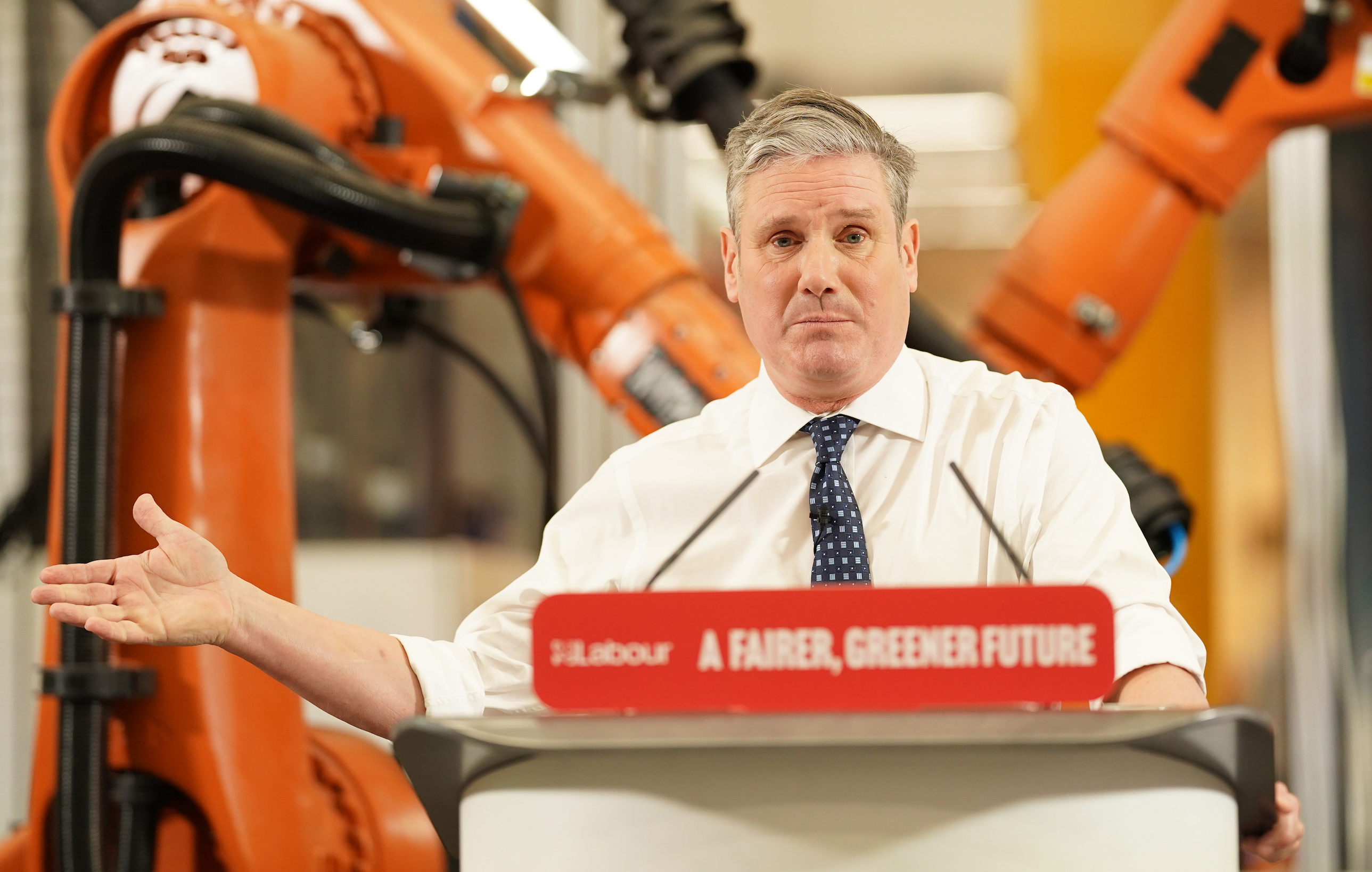Labour leader Sir Keir Starmer has said there is no “political case” for the UK to join the European Union’s single market during a visit to the World Economic Forum in Davos, Switzerland.
Speaking to the BBC‘s Newsnight programme, Sir Keir said that the UK’s divorce agreement with Brussels is “not a good deal” and he wants the nation to have a “closer relationship with the EU”.
But he added that the UK “can’t go back into the EU” and that included any deal to join the bloc’s economic community, the single market.
He said: “We would accept that the deal that Johnson got is not a good deal and you can see the impact it is having on our economy and that is why we have been clear we want a closer relationship with the EU.


“That starts with the protocol in Northern Ireland, it then goes into a discussion about how close we can be. We can’t go back into the EU, there isn’t a political case for going back into the EU or the single market. But I am having discussions about what a closer trading relationship might look like”.
The comments will be seen as a rebuke to Labour Mayor of London Sadiq Khan who said earlier this month that there needs to be a “pragmatic debate about the benefits of being a part of the customs union and the single market”.
Sir Keir Starmer, who campaigned to remain in the 2016 EU revenue and subsequently for a “peoples’ vote” on Brexit, has looked to embrace the UK’s decision to leave the EU as Labour leader.
In his new year’s address earlier this month, the Labour leader promised to deliver a post-Brexit “take back control” bill if elected as PM, saying he would deliver on the promises of Brexit with devolution over areas including skills, housing and transport.
In further comments made to Newsnight, Sir Keir Starmer did not deny that his political approach is the same as Tony Blair’s was in 1997 or “full blairite”
When it was put to Sir Keir that when he first became Labour leader his politics were similar to that of Ed Miliband but that now he is a “full Blairite, 1997”, he said: “I have been an advocate of partnership working with business for a very long time. I have been an advocate of reforming our public services for a very long time. I ran a public service, the Crown Prosecution Service for five years, I reformed that before I even got into politics.
“So none of this is new for me. But we do face, and we have got to confront the fact, that if we come into government we will face a very damaged economy, we will face a country that hasn’t had inward investment in the way we would have liked for a very long time, growth way below what we need and public services not just on their knees but on their face and we will turn that around”.
In his contribution to a WEF panel event on Thursday, Sir Keir said a Labour government would pursue an “active state” ready to partner with business.
He used the opportunity to stress his green credentials, saying Britain would benefit from a clean energy plan that would bring down fuel costs, create jobs and contribute towards tackling the climate crisis.
“There’s huge potential for this in the UK in terms of wind and offshore wind,” Starmer told a WEF panel.
Shadow chancellor Rachel Reeves, who attended Davos with Sir Keir, criticised prime minister Rishi Sunak’s absence. “Somebody has got to be an ambassador for Britain and the prime minister and the chancellor are not here”, Ms Reeves told a separate audience referring to chancellor Jeremy Hunt.
“We are here to send a message that at the next election … the British economy will be open for business again.”
Although Sunak did not attend the event, the British Government did send international trade minister Kemi Badenoch and business secretary Grant Shapps to Davos.
Former prime minister Boris Johnson also made an appearance, which he used to urge Britain’s allies to double down on sending military equipment to Ukraine.












